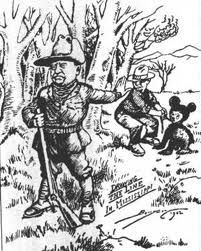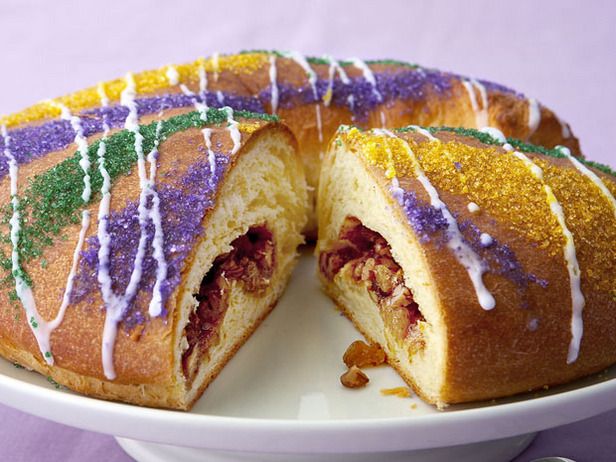 Last week in Washington DC, your Sunday Train correspondent was able to attend the “Future of Rail Symposium” held in Washington DC. The presenters discussed various aspects of building a Steel Interstate corridor, including the Steel Interstate concept, a discussion of electrified rail around the world, why rely on electricity rather than LNG for major backbone corridors, the engineering and economics of electrification in North America, an approach to financing an initial Steel Interstate corridor without requiring new legislation to be passed through our gridlocked Federal government, vehicle and track considerations of the “Rapid Freight” rail component of the Steel Interstate, the labor dimension and the need for a new social contract with Rail Labor, and a final presentation on the “Solutionary Rail” proposal by the Backbone Campaign to establish a Steel Interstate on the BNSF Northern Transcon corridor.
Last week in Washington DC, your Sunday Train correspondent was able to attend the “Future of Rail Symposium” held in Washington DC. The presenters discussed various aspects of building a Steel Interstate corridor, including the Steel Interstate concept, a discussion of electrified rail around the world, why rely on electricity rather than LNG for major backbone corridors, the engineering and economics of electrification in North America, an approach to financing an initial Steel Interstate corridor without requiring new legislation to be passed through our gridlocked Federal government, vehicle and track considerations of the “Rapid Freight” rail component of the Steel Interstate, the labor dimension and the need for a new social contract with Rail Labor, and a final presentation on the “Solutionary Rail” proposal by the Backbone Campaign to establish a Steel Interstate on the BNSF Northern Transcon corridor.
February 2015 archive
Feb 16 2015
Sunday Train: Future of Rail Technical Symposium, Washington DC. 3 Feb, 2015
Feb 15 2015
Rant of the Week: Jon Stewart – Guardians of Veracity
Bri, why? Why, Bri? Why, Bri lie? Sigh. Were you Bri high?
Feb 15 2015
Celebrating Mardi Gras
“Laissez Les Bons Temps Rouler!”
 Mardi Gras en français or Fat Tuesday in English, it is time to party. It’s the last day for some Christians to eat all the food they like and party before the season of fasting before Lent. In many traditions it isn’t just one day. Mardi Gras, or Carnival season, starts in January after 12th Night or the Epiphany, culminating at midnight on the day before Ash Wednesday. English traditions call the day Shrove Tuesday and for many religious Christians a time for confession. Celebrations vary from city to city and by country but many of the traditions are the same masks, beads, parades and parties. In Mobile, Alabama,the former capital of New France, the Mardi Gras social events start in November with “mystic society” balls on Thanksgiving and New Year’s Eve with more parades and balls in January and February ending on the traditional Tuesday before Lent. And you thought New Orleans and Rio de Janeiro were the party cities, heh. Many if these balls raise large amounts of money for charity, justifying in a way the “decadence”. In other places with a French heritage, like Louisiana, where the revelry also starts weeks before with parades and parties celebrating the arrival of the “Krewes” or organizations that sponsor various parades, the day is an official holiday. Like anyone in New Orleans is going to the office that day. There’s many traditional foods, too, like pancakes, fruit laden sweet breads and sugary pastries. Any food with lots of fat and eggs. Look out arteries here it comes.
Mardi Gras en français or Fat Tuesday in English, it is time to party. It’s the last day for some Christians to eat all the food they like and party before the season of fasting before Lent. In many traditions it isn’t just one day. Mardi Gras, or Carnival season, starts in January after 12th Night or the Epiphany, culminating at midnight on the day before Ash Wednesday. English traditions call the day Shrove Tuesday and for many religious Christians a time for confession. Celebrations vary from city to city and by country but many of the traditions are the same masks, beads, parades and parties. In Mobile, Alabama,the former capital of New France, the Mardi Gras social events start in November with “mystic society” balls on Thanksgiving and New Year’s Eve with more parades and balls in January and February ending on the traditional Tuesday before Lent. And you thought New Orleans and Rio de Janeiro were the party cities, heh. Many if these balls raise large amounts of money for charity, justifying in a way the “decadence”. In other places with a French heritage, like Louisiana, where the revelry also starts weeks before with parades and parties celebrating the arrival of the “Krewes” or organizations that sponsor various parades, the day is an official holiday. Like anyone in New Orleans is going to the office that day. There’s many traditional foods, too, like pancakes, fruit laden sweet breads and sugary pastries. Any food with lots of fat and eggs. Look out arteries here it comes.
Mardi Gras was introduced to America in colonial days as a sedate religious tradition by Pierre Le Moyne d’Iberville and Jean-Baptiste Le Moyne de Bienville, in the late 17th century, when King Louis XIV sent the pair to defend France’s claim on the territory of Louisiane.
The expedition, led by Iberville, entered the mouth of the Mississippi River on the evening of March 2, 1699, Lundi Gras, not yet knowing it was the river explored and claimed for France by René-Robert Cavelier, Sieur de La Salle in 1683. The party proceeded upstream to a place on the west bank about 60 miles downriver from where New Orleans is today, where a small tributary emptied into the great river, and made camp. This was on March 3, 1699, Mardi Gras day, so in honor of this holiday, Iberville named the spot Point du Mardi Gras (French: “Mardi Gras Point”) and called the small tributary Bayou Mardi Gras. Bienville went on to found Mobile, Alabama in 1702 as the first capital of French Louisiana. In 1703 French settlers in that city began to celebrate the Mardi Gras tradition. By 1720, Biloxi was made capital of Louisiana. While it had French settlers, Mardi Gras and other customs were celebrated with more fanfare given its new status. In 1723, the capital of French Louisiana was moved to New Orleans, founded in 1718. With the growth of New Orleans as a city and the creolization of different cultures, the varied celebration of Mardi Gras became the event most strongly associated with the city. In more recent times, several U.S. cities without a French Catholic heritage have instituted the celebration of Mardi Gras, which sometimes emerged as grassroots movements.
The Carnival season, or Mardi Gras, kicked on in the city of New Orleans on January 6th, Twelfth Night, with the traditional Twelfth Night Revelers’ Ball, hosted by the krew of the same name, where the queen of Mardi Gras is chosen, a tradition that began in 1870.
Up until this time in Carnival and Mardi Gras history, there had never been a queen of the celebration. In fact, prior to this time, all parades, balls and tableaux were planned and staged by men. Women did not participate in any fashion until after the tableaux when ladies were summoned from the audience to take part in the dancing.
And now the great surprise of the evening was about to be unveiled. The first queen in the history of the New Orleans Carnival was about to be chosen, crowned and put upon a pedestal to be admired. The huge king cake was brought out for all to witness the proceedings. When the cake was prepared, a golden bean had been placed inside. The court fools were to slice generous servings of the cake and pass them to the ladies, who waited patiently. [..]
Selection of a queen at the Twelfth Night Revelers Ball through the use of the king cake is still practiced today. In place of a real cake, a huge artificial cake with little drawers is used. One drawer holds a golden bean and the balance, silver beans. The lady selecting the drawer with the golden bean is crowned queen and those choosing drawers containing silver beans are the maids.
The partying, alas, will end at midnight on Shrove Tuesday. So, Laissez les bon temps rouler!
Feb 15 2015
What’s Cooking: Mardi Gras a Carnivale of Food
Republished from February 19, 2012
 Mardi Gras, Carnivale, Shove Tuesday, Fat Tuesday, what ever you call the day before the Christian Lent, it’s all about food, fatty food. Eat, drink and be merry for at midnight you must fast and give up your favorite vice, except on Sunday, for the next forty days, that is if you’re a Christian. We Pagans just raise an eye brow and enjoy the party and the FOOD!
Mardi Gras, Carnivale, Shove Tuesday, Fat Tuesday, what ever you call the day before the Christian Lent, it’s all about food, fatty food. Eat, drink and be merry for at midnight you must fast and give up your favorite vice, except on Sunday, for the next forty days, that is if you’re a Christian. We Pagans just raise an eye brow and enjoy the party and the FOOD!
Traditional foods are all rich, fatty and sweet. Gumbo, jambalaya, red beans and rice, catfish, po’ boys to pancakes and beignets are all calorie laden delights that will need 40 days of fasting and exercise to shed the pounds. So to start the party off, here are a few recipes for a hearty gumbo, desert, something to drink and, of course, King Cake. Tradition is the person who discovers the tiny plastic or porcelain baby in his or her slice is branded as the provider of the next cake. In pre-Christian societies whoever found a coin or bean in a special cake was crowned King for the year; afterwards, he was sacrificed to ensure a good harvest – which makes having to pony up for the next cake seem like a mighty good deal.
This recipe serves 10 but can be cut in half
Ingredients:
12 ounces applewood-smoked bacon, diced
1 1/2 pounds smoked fully cooked sausage (such as linguiça), halved lengthwise, cut crosswise into 1/2-inch-thick semi-circles
1 pound andouille sausages, quartered lengthwise, cut crosswise into 1/2-inch cubes
1/2 pound tasso or smoked ham (such as Black Forest), cut into 1/2-inch cubes
1 1/2 pounds onions, chopped (4 to 5 cups)
2 large celery stalks, chopped
1 8-to 10-ounce red bell pepper, coarsely chopped
1 8-to 10-ounce green bell pepper, coarsely chopped
6 large skinless boneless chicken thighs, cut into 1- to 11/2-inch pieces
2 tablespoons paprika
1 tablespoon chopped fresh thyme
1 tablespoon chili powder
1/4 teaspoon (or more) cayenne pepper
3 10-ounce cans diced tomatoes and green chiles
2 1/2 cups beef broth
3 cups (19 to 20 ounces) long-grain white rice
8 green onions, chopped (about 2 cups)
Chopped fresh Italian parsleyPreparation:
Position rack in bottom third of oven and preheat to 350°F. Cook bacon in very large pot over medium-high heat until brown but not yet crisp, stirring often, 8 to 10 minutes. Add smoked sausage, andouille, and tasso. Sauté until meats start to brown in spots, about 10 minutes. Add onions, celery, and bell peppers. Cook until vegetables begin to soften, stirring occasionally, 10 to 12 minutes. Mix in chicken. Cook until outside of chicken turns white, stirring often, 5 to 6 minutes. Mix in paprika, thyme, chili powder, and 1/4 teaspoon cayenne. Cook 1 minute. Add diced tomatoes with chiles and broth; stir to blend well. Add more cayenne, if desired. Mix in rice.
Bring jambalaya to boil. Cover pot. Place in oven and bake until rice is tender and liquids are absorbed, 45 to 48 minutes. Uncover pot. Mix chopped green onions into jambalaya; sprinkle jambalaya with chopped parsley and serve.
This will make 48 beignets
Ingredients:
3/4 cup whole milk
1 1/2 cups buttermilk
4 teaspoons active dry yeast
2 1/2 tablespoons sugar
3 1/2 cups bread flour plus extra for flouring work surface
1/2 teaspoon baking soda
1/4 teaspoon salt
Peanut oil for frying
Confectioners’ sugar for serving, as much as you think you’ll need-then double that!Preparation:
Heat the milk in a small saucepan over medium-high heat until small bubbles form at the surface. Remove from the heat, add the buttermilk, and then pour into a stand mixer bowl. Whisk in the yeast and the sugar and set aside for 5 minutes. Add the flour, baking soda, and salt, and mix on low speed, using a dough hook, until the dry ingredients are moistened, 3 to 4 minutes. Increase the mixer speed to medium and continue mixing until the dough forms a loose ball and is still quite wet and tacky, 1 to 2 minutes longer. Cover the bowl with plastic wrap and set the dough aside in a draft-free spot for 1 hour.
Pour enough peanut oil into a large pot to fill it to a depth of 3 inches and bring to a temperature of 375°F over medium heat (this will take about 20 minutes). Line a plate with paper towels and set aside.
Lightly flour your work surface and turn the dough out on it. Sprinkle the top of the dough with flour, gently press to flatten, fold it in half, and gently tuck the ends under to create a rough-shaped round. Dust again and roll the dough out into a ½-inch- to ¹/³
inchthick circle. Let the dough rest for 1 minute before using a chef’s knife, a bench knife, or a pizza wheel to cut the dough into 1 1/2-inch squares (you should get about 48).Gently stretch a beignet lengthwise and carefully drop it into the oil. Add a few beignets (don’t overcrowd them, otherwise the oil will cool down and the beignets will soak up oil and be greasy) and fry until puffed and golden brown, turning them often with a slotted spoon, for 2 to 3 minutes. Transfer to the prepared plate to drain while you cook the rest. Serve while still warm, buried under a mound of confectioners’ sugar, with hot coffee on the side.
Make ahead:
The beignet dough can be made up to 8 hours in advance of frying. Line a baking sheet with parchment paper and spray it with nonstick cooking spray. After cutting the dough, place the beignets on the paper and place another greased sheet of parchment paper, sprayed-side down, on top. Wrap the entire baking sheet with plastic wrap and refrigerate. The beignets can be fried straight from the refrigerator.
Ingredients:
For the Cake:
1/3 cup milk
1 package active dry yeast
2 1/2 cups bread flour, plus more for dusting
2 large egg yolks, plus 2 eggs
3 tablespoons granulated sugar
Finely grated zest of 1 lemon
1 teaspoon salt
1/2 teaspoon freshly grated nutmeg
1 1/2 sticks unsalted butter, melted and cooled, plus more for greasing the bowlFor the Filling and Glaze:
1/2 cup golden raisins
1/4 cup bourbon
3/4 cup packed dark brown sugar
2/3 cup toasted pecans, chopped
1 teaspoon vanilla extract
1 teaspoon ground cinnamon
2 teaspoons grated orange zest
1/4 teaspoon salt
1 dry bean or plastic King Cake baby (available at party-supply stores or mardigrasday.com)
1/2 cup confectioners’ sugar
Purple, green and gold sanding sugar, for decoratingDirections:
Make the cake: Heat the milk in a saucepan until scalding; transfer to a food processor, add the yeast and pulse to combine. Add 1/2 cup flour and the egg yolks; process to combine. Pour the remaining 2 cups flour evenly over the yeast mixture; do not process. Put the lid on; set aside for 90 minutes.
Add the 2 whole eggs, granulated sugar, lemon zest, salt and nutmeg to the food processor; process to make a slightly textured dough, about 1 minute. With the machine running, slowly add the butter to make a smooth, sticky dough. Transfer the dough to a lightly buttered bowl and cover tightly with plastic wrap; let rise in a warm place for 3 hours. Turn the dough out onto a clean surface and knead briefly; form into a ball and return to the bowl. Cover tightly with plastic wrap and refrigerate for 8 hours or overnight.
Make the filling:
Plump the raisins in the bourbon in a small saucepan over medium heat. Remove from the heat and add the brown sugar, pecans, vanilla, cinnamon, orange zest, salt and the bean or plastic baby; mix until combined and set aside.
On a floured surface, roll the dough into a 20-by-7-inch rectangle, with the long edge facing you. Spoon the filling in an even layer over the dough, leaving a 1-inch border along the top and bottom. Fold the bottom and then the top edge over the filling to make a tight roll; pinch to seal. Transfer the roll seam-side down to a parchment-lined baking sheet; tuck one end into the other to form a ring. Cover loosely with plastic wrap and set aside in a warm place until the roll doubles in size, about 2 hours.
Preheat the oven to 350 degrees. Bake the cake until firm and golden brown, about 40 minutes. Cool on a rack.
Make the glaze:
Mix 3 tablespoons water with the confectioners’ sugar; brush 3 tablespoons glaze over the cake. Sprinkle with bands of colored sugar; drizzle with more glaze.
In the years since Katrina, the only welcome storms in New Orleans are the ones in a glass. Watch out for this fruity, gale-force rum concoction-more than one, and you’ll need to declare yourself a natural disaster.
Because the syrup is hard to come by (and artificially flavored) here is a substitute for it that was well received: a tablespoon of passion fruit sorbet (Häagen Dazs makes one) and a teaspoon of grenadine, per serving.
Ingredients:
1 ounce light rum
1 ounce dark rum
1 tablespoon passion fruit syrup
Juice of 1/2 lime
1 teaspoon superfine sugar, or to taste
Ice cubesPreparation:
Mix all ingredients except ice in shaker. Stir to dissolve sugar. Add ice cubes, shake well, and strain mixture into a cocktail glass.
Feb 15 2015
On This Day In History February 15
This is your morning Open Thread. Pour your favorite beverage and review the past and comment on the future.
Find the past “On This Day in History” here.
February 15 is the 46th day of the year in the Gregorian calendar. There are 319 days remaining until the end of the year (320 in leap years).

On this day in 1903, toy store owner and inventor Morris Michtom places two stuffed bears in his shop window, advertising them as Teddy bears. Michtom had earlier petitioned President Theodore Roosevelt for permission to use his nickname, Teddy. The president agreed and, before long, other toy manufacturers began turning out copies of Michtom’s stuffed bears, which soon became a national childhood institution.
The name Teddy Bear comes from former United States President Theodore Roosevelt, whose nickname was “Teddy”. The name originated from an incident on a bear-hunting trip in Mississippi in November 1902, to which Roosevelt was invited by Mississippi Governor Andrew H. Longino. There were several other hunters competing, and most of them had already killed an animal. A suite of Roosevelt’s attendants, led by Holt Collier, cornered, clubbed, and tied an American Black Bear to a willow tree after a long exhausting chase with hounds. They called Roosevelt to the site and suggested that he should shoot it. He refused to shoot the bear himself, deeming this unsportsmanlike, but instructed that the bear be killed to put it out of its misery, and it became the topic of a political cartoon by Clifford Berryman in The Washington Post on November 16, 1902. While the initial cartoon of an adult black bear lassoed by a white handler and a disgusted Roosevelt had symbolic overtones, later issues of that and other Berryman cartoons made the bear smaller and cuter.
Morris Michtom saw the drawing of Roosevelt and the bear cub and was inspired to create a new toy. He created a little stuffed bear cub and put it in his shop window with a sign that read “Teddy’s bear,” after sending a bear to Roosevelt and receiving permission to use his name. The toys were an immediate success and Michtom founded the Ideal Novelty and Toy Co.
At the same time in Germany, the Steiff firm, unaware of Michtom’s bear, produced a stuffed bear from Richard Steiff‘s designs. They exhibited the toy at the Leipzig Toy Fair in March 1903 and exported 3,000 to the United States.
By 1906 manufacturers other than Michtom and Steiff had joined in and the craze for “Roosevelt Bears” was such that ladies carried them everywhere, children were photographed with them, and Roosevelt used one as a mascot in his bid for re-election.
American educator Seymour Eaton wrote the children’s book series The Roosevelt Bears, while composer John Bratton wrote “The Teddy Bear Two Step” which, with the addition of Jimmy Kennedy‘s lyrics, became the song “The Teddy Bears’ Picnic”.
Early teddy bears were made to look like real bears, with extended snouts and beady eyes. Today’s teddy bears tend to have larger eyes and foreheads and smaller noses, babylike features that make them more attractive to buyers because they enhance the toy’s cuteness, and may even be pre-dressed.
Feb 15 2015
Punting the Pundits: Sunday Preview Edition
“Punting the Pundits” is an Open Thread. It is a selection of editorials and opinions from around the news medium and the internet blogs. The intent is to provide a forum for your reactions and opinions, not just to the opinions presented, but to what ever you find important.
Thanks to ek hornbeck, click on the link and you can access all the past “Punting the Pundits”.
Follow us on Twitter @StarsHollowGzt
The Sunday Talking Heads:
This Week with George Stephanopolis: The guests on Sunday’s “This Week” are: Rep. Adam Kinzinger (D-IL); and Rep. Adam Schiff (D- CA).
The guests at the roundtable are: Democratic strategist Donna Brazile; Republican strategist Ana Navarro; Washington Post national political reporter Robert Costa; and Politico editor and co-founder Jim VandeHei.
Face the Nation with Bob Schieffer: Mr. Schieffer’s guests are: White House Chief of Staff Denis McDonough; Sen. Bob Corker (R-TN); and Rep. John Lewis (D-GA).
His panel guests are: Kimberley Strassel, The Wall Street Journal; Jeffrey Goldberg, The Atlantic; Peter Baker, The New York Times; and CBS News Chief Legal Correspondent Jan Crawford.
Meet the Press with Chuck Todd: The guests on Sunday’s “MTP” are: Veterans Administration Secretary Robert McDonald; Sen. John McCain (R-AZ); Sen. Jack Reed (D-RI); and Comedian Dana Carvey.
The roundtable guests are: Joe Scarborough, MSNBC host; former White House Senior Advisor David Axelrod; April Ryan, American Urban Radio Networks; and Kathleen Parker, The Washington Post.
State of the Union: The guests announced for Sunday’s CNN are: Department of Homeland Security Secretary Jeh Johnson in a pre-taped interview with Dan Bash; former Secretary of Defense Leon Panetta; former Rep. Mike Rogers (R-MI); Rep. Ryan Zinke (R-MT); John Stanton, BuzzFeed; Matt Yglesias, Vox; and Democratic Strategist Ben LaBolt.
Feb 15 2015
Six In The Morning
Copenhagen shootings: Police kill ‘gunman’ after two attacks
15 February 2015 Last updated at 08:10
Police in Copenhagen say they have shot dead a man they believe was behind two deadly attacks in the Danish capital hours earlier.Police say they killed the man in the Norrebro district after he opened fire on them.
It came after one person was killed and three police officers injured at a free speech debate in a cafe on Saturday.
In the second attack, a Jewish man was killed and two police officers wounded near the city’s main synagogue.
Police say video surveillance suggested the same man carried out both attacks. They do not believe any other people were involved.
“We assume that it’s the same culprit behind both incidents, and we also assume that the culprit that was shot by the police task force… is the person behind both of these assassinations,” Chief Police Inspector Torben Molgaard Jensen told a news conference.
Feb 15 2015
FireDogLake Experiences Technical Difficulties
One of our favorite blogs, FireDogLake, has been down for the last few days. Kevin Kosztola, editor of FDL News Desk, tweeted this message
Yes, @firedoglake has been down for couple days due to unusual activity overwhelming servers. Tech support on it & we'll be back soon.
— Kevin Gosztola (@kgosztola) February 13, 2015
Feb 15 2015
The Breakfast Club (Changing Tide)
Welcome to The Breakfast Club! We’re a disorganized group of rebel lefties who hang out and chat if and when we’re not too hungover we’ve been bailed out we’re not too exhausted from last night’s (CENSORED) the caffeine kicks in. Join us every weekday morning at 9am (ET) and weekend morning at 10:30am (ET) to talk about current news and our boring lives and to make fun of LaEscapee! If we are ever running late, it’s PhilJD’s fault.

Breakfast Tune: Folk Alley Sessions: Leyla McCalla “Changing Tide”
Today in History
Highlights of this day in history: The U.S. battleship Maine explodes in Havana harbor, bringing America closer to war with Spain; The Soviet Union’s last troops leave Afghanistan; Astronomer Galileo and suffragist Susan B. Anthony born.
Breakfast News & Blogs Below
Feb 14 2015
Random Japan
Pot-sticker paradise, hot-spring hotel just outside of Tokyo makes for a tasty retreat
Meg MurphyAsk a Japanese person to give some examples of Chinese food, and they’ll likely reply with things like chaahan (fried rice) and the quintessential gyoza (pot-stickers). With their crispy fried outsides and juicy, flavorful insides, you can’t go wrong with gyoza, and many would say that Chinese food chain GYOZANOMANSYU (餃子の満州), based in the Kanto region of Japan, is the leader of them all.
Those wishing to take the gyoza experience a bit further can visit the hot-spring hotel Toumeikan in Gunma Prefecture, managed by GYOZANOMANSYU, and for a mere 5,900 yen per night (roughly US$59) you can stay in one of their cozy Japanese-style rooms, take a relaxing soak in the onsen hot springs, and get your fill at their breakfast buffet. Located deep in the mountains of Gunma, yet within a two- to three-hour drive from Tokyo, makes this a great place for a weekend getaway. Albeit one involving lots of garlic and chives.






Recent Comments